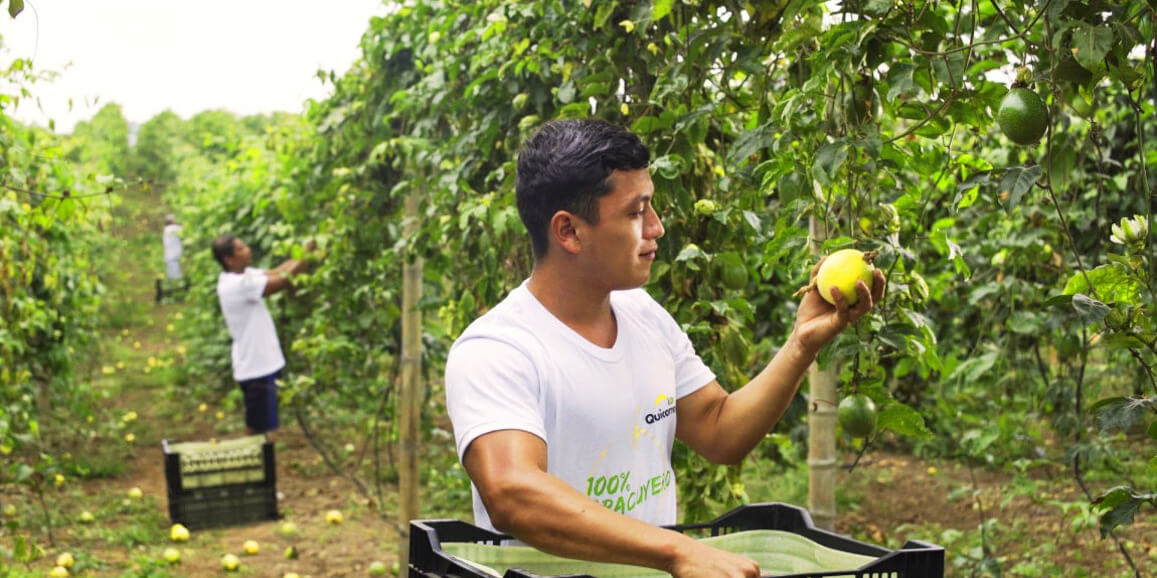
Getting juicy: Ecuador’s halal tropical fruit concentrates
Quicornac’s halal certified passion fruit and mango concentrate juices are exported to more than 40 countries, mainly the US and Europe.
São Paulo: A South American tropical fruit juice company that recognised the demand for halal certified products is a synonym for quality has now expanded its exports to more than 40 countries, predominantly the US and across Europe.
Founded in 1989 Quicornac exports passion fruit and mango concentrate juices, frozen and aseptic, targeting the processing industry for food, beverages, ice cream and yoghurt (B2B).
Food engineer Samuel Sánchez, technical leader of Quicornac, has been working for the company for 12 years and told Salaam Gateway that securing halal certification means the raw materials cannot exceed 0.5% ethanol, the level that comes from the fruit itself.
“No additives go in the concentrates; it is only fruit,” he guarantees.
Frozen products are pasteurised and require refrigeration, while the aseptic products undergo a thermal process, are airtight and filled in a customised machine.
“Everything is aseptic, even the packaging, so there is no need for refrigeration,” he said.
The products travel in 55-gallon drums, holding about 220 litres each.
As raw material suppliers to the industry, Quicornac sells its products to companies mainly in the US and across Europe and they distribute the final product to Islamic countries and within their internal markets.
“They direct the product to the consumer,” he said.
Quicornac ensures the cleaning detergents on the production line and throughout the facility have a halal-certified origin. Enzymatic detergent can be of animal origin, but is unnecessary in their context as Quicornac does not work with fat or blood.
The company also supervises the reception of materials and storage.
FAMBRAS Halal, a Brazilian halal certifier, started undertaking Quicornac’s annual certification audit in 2017. Previously the company had worked with another certifier who was not as accepted globally.
Sánchez said customer demand had driven the decision to start halal certification.
“It gives us a competitive advantage … and we have access to markets that (non-certified companies) cannot reach. It is definitely a plus,” he said.
Aside from the business advantage, the safety and food security add value to the products, Sánchez said.
“It is a trend because it focuses on safety issues, a safe food, [without] contaminants [and] will not cause any damage, neither to soul nor spirit. More than a trend, I see it as a necessity for the health of the human being to produce innocuous products that will not harm your health.”
Already exporting to South Africa, Thailand, China, Puerto Rico, Costa Rica, Panama, Chile, Brazil, the UK, Spain, Italy, Australia, Japan, the Netherlands and Germany, Sánchez said Quicornac wants to enter new markets including Muslim majority countries.
The company has a logistics advantage and stock flexibility, as it has a storage facility in Rotterdam. Sánchez said the business is wholly sustainable and has zero waste.
“We don’t waste anything from the passion fruit. We make passion fruit seed oil, extra virgin passion fruit oil and passion fruit seed flour.”
The company has a second, non-certified plant in Peru, while juices and other products for the internal market are also uncertified.
© SalaamGateway.com 2022. All Rights Reserved

Bruna Garcia